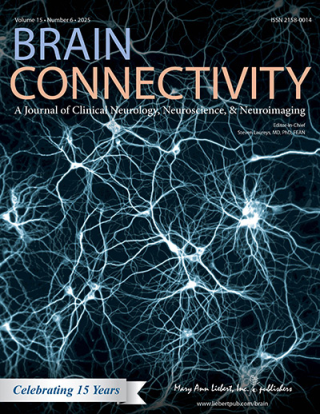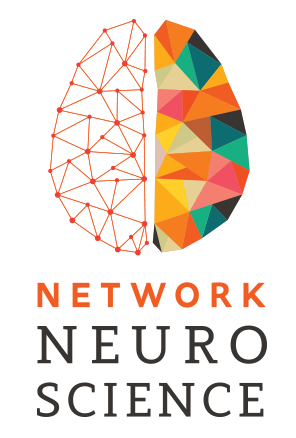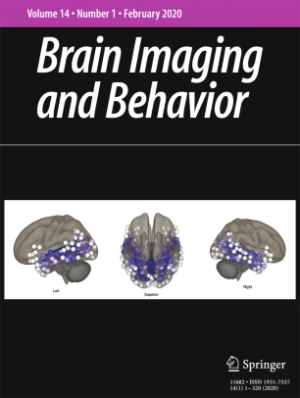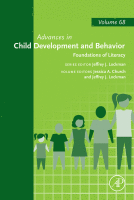-
12 Aug 2025 • Journal Article • Brain Connectivity
Enhanced Functional Connectivity of Executive Functions and Attention Networks During Reading Versus Narrative Comprehension in Dyslexia
AbstractIntroduction: Executive functions (EF) are cognitive processes supporting language and reading. Children with dyslexia show reading difficulties primarily due to phonological processing, with additional reported deficits in EF. This study aimed to determine the differences in EF involvement during written (reading) versus oral language (narrative) comprehension in
… show more -
4 Aug 2025 • Journal Article • Pediatric Research
Engagement of networks related to attention, executive function, and sensory processing during parental vs experimenter story-listening: an fMRI study
AbstractBackground
Caregivers shape children’s reading abilities and neural networks. While joint reading is well-studied, the impact of parental storytelling on reading-related networks (executive function [EF], attention, sensory processing) before and at the early stages of reading acquisition remains unclear. This study examines whether parental storytelling differentially
… show more -
1 Aug 2025 • Journal Article • Network Neuroscience
Greater audiovisual integration with executive functions networks following a visual rhythmic reading training in children with reading difficulties: An fMRI study
AbstractAbstract. Reading difficulty (RD; dyslexia) is a developmental condition with neurological origins and persistent academic consequences. Children with RD often show deficits in audiovisual integration (AVI) and executive functions. Visual rhythmic reading training (RRT) has been associated with improvements in these domains, but it remains unclear whether such effects
… show more -
2 Jul 2025 • Journal Article • Brain Imaging and Behavior
Functional connectivity of sensory and executive function networks during a story listening task is related to parent/child interaction during joint reading: a functional MRI diffusion map study
AbstractThe quality of parent–child interaction during shared reading (“shared reading quality”) is strongly linked to cognitive and relational benefits. However, the relationship between shared reading quality and activation and synchronization of reading-related brain networks has not yet been characterized. The current study involved 22 4-year-old girls who completed functional
… show more -
26 Jun 2025 • Journal Article • Advances in Child Development and Behavior
Audiovisual integration and cognitive control supporting reading fluency
AbstractThe ability to integrate information from the auditory and visual sensory systems, also referred to as audiovisual integration (and as synchronization), is important for reading fluency. Several studies have pointed to atypical synchronization of the auditory and visual systems in individuals with reading difficulties, which in turn may help to explain their dysfluent
… show more -
18 Apr 2025 • Preprint • Social Science Research Network
Executive Function Networks in Relation to Listening and Reading Comprehension: A Comparison between Children with Self-Limited Epilepsy with Centro-Temporal Spikes (Selects), Children with Reading Difficulties and Typical Readers
AbstractChildren with Self-limited Epilepsy with Centro-Temporal Spikes (SeLECTS) display deficits in both listening and reading comprehension, as well as in executive functions (EF). The aim of the current study was to investigate differences in EF involvement during listening and reading comprehension in children with SeLECTS (ages 8-15 years, n=17), and compare findings to
… show more -
6 Mar 2025 • Journal Article • Language, Cognition and Neuroscience
Greater functional connectivity between executive function-related networks predicts word reading fluency: an fMRI study in children
AbstractThis study aimed to determine the involvement of neural circuits associated with executive functions (EF) during Hebrew reading in its two forms, deep and shallow, on a word and contextual level in children. Functional MRI data was collected employing 49 8-12-year-old Hebrew-speaking children performing the n-back task. Functional connectivity within and between EF
… show more -
1 Feb 2025 • Journal Article • Dyslexia
Cognitive and Neurobiological Correlates for Switching/Inhibition Moderate the Relations Between Word Reading and Reading Comprehension in Hebrew-Speaking Children: An fMRI Study
AbstractThe expanded Simple View of Reading model suggests language processing and word reading as contributors to reading comprehension and points at the participation of executive functions as supporting these abilities. Switching and inhibition are both executive functions (EF) contributing to reading, especially in languages with two writing systems—shallow and deep, such
… show more -
31 Jan 2025 • Journal Article • Acta Paediatrica
Greater Parent–Child Brain Synchronisation During Printed Book Versus Screen Reading Using Hyperscanning Electroencephalograph Data
AbstractAim The differences between parent–child joint attention while reading together from a screen versus from a paper are unknown. The current study aimed to determine if parent–child brains synchronise differently during screen-based versus printed paper-based, in other words, a book reading. Methods The study was carried out in 2022 in Israel. Cohorts were recruited via
… show more -
27 Dec 2024 • Journal Article • Journal of the International Neuropsychological Society
Differentiating the neurobiological correlates for reading gains in children with reading difficulties with and without attention-deficit/hyperactivity disorder using fMRI
AbstractObjective:Reading difficulties (RD) frequently co-occur with attention-deficit/hyperactivity disorder (ADHD), and children with both RD + ADHD often demonstrate greater challenges in reading and executive functions (EF) than those with RD-only.Methods:This study examined the effect of a 4-week EF-based reading intervention on behavioral and neurobiological correlates
… show more




























